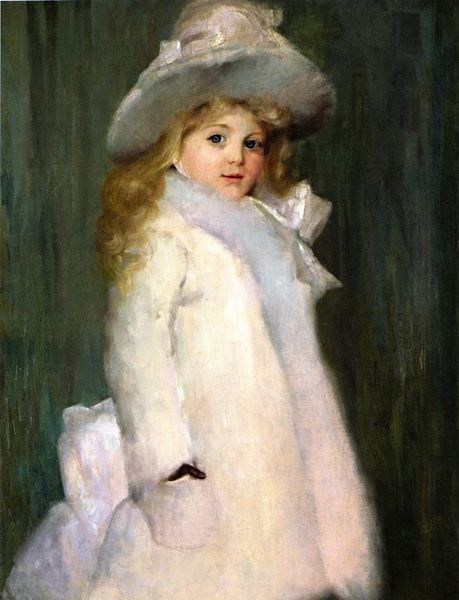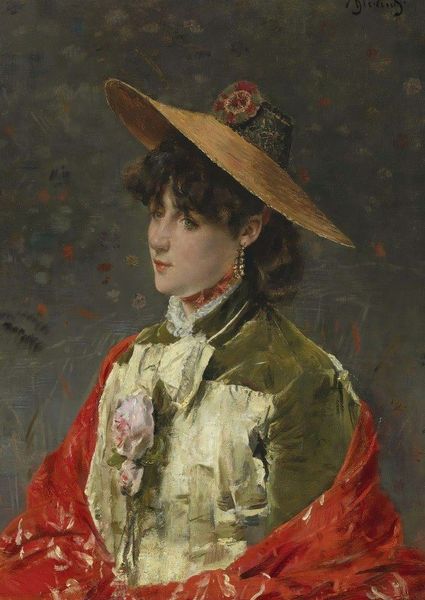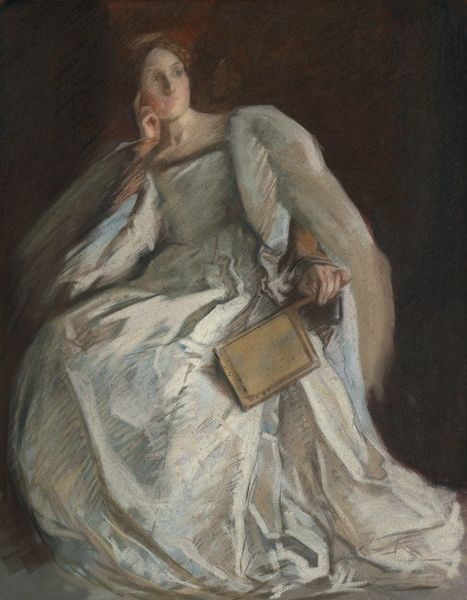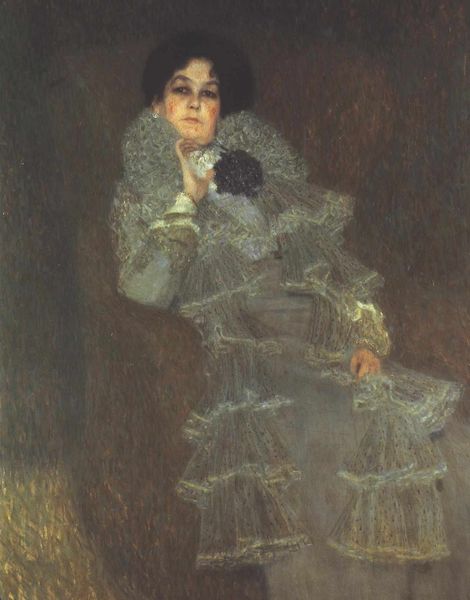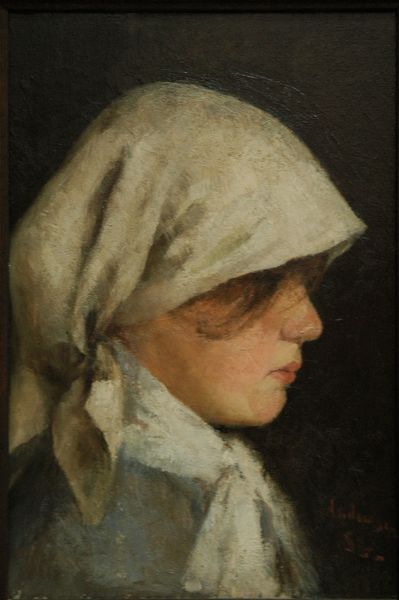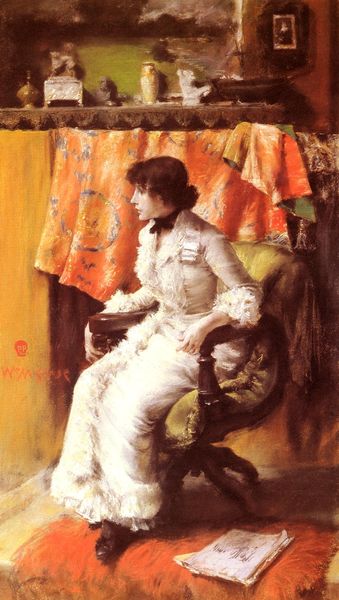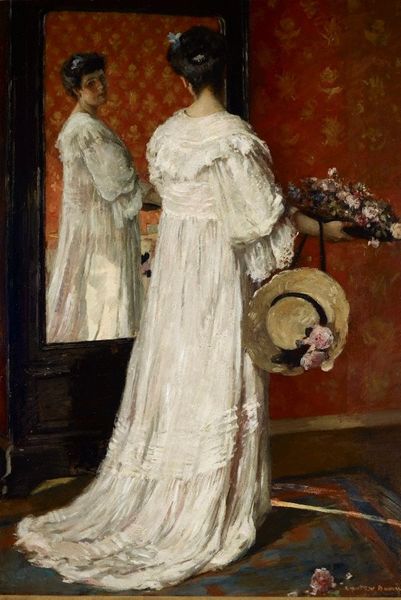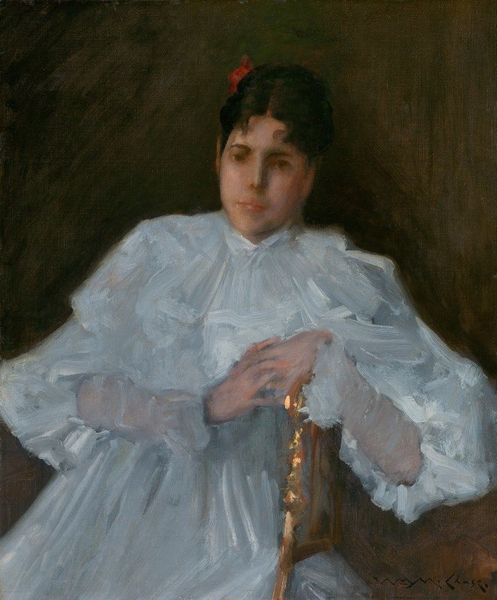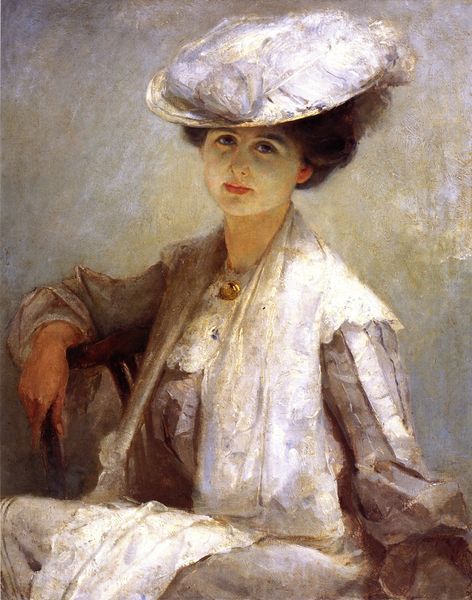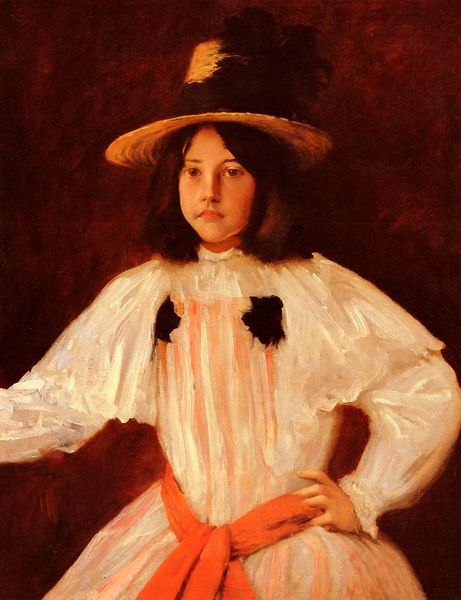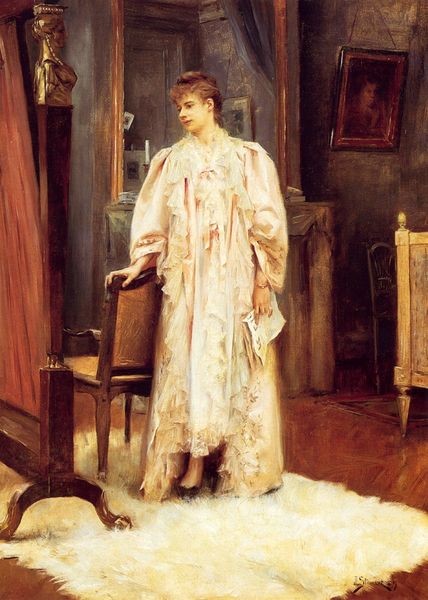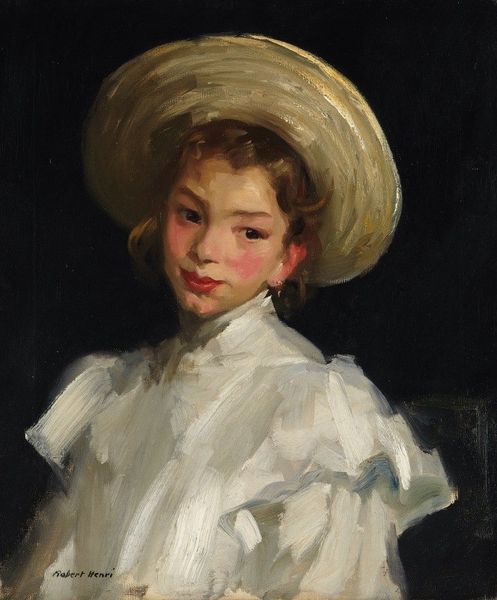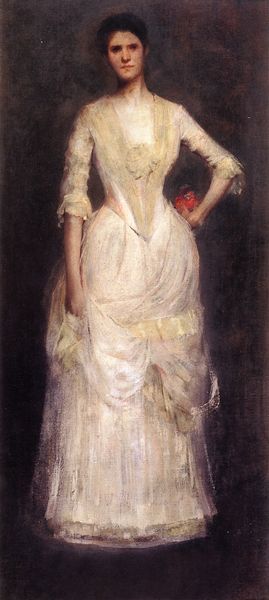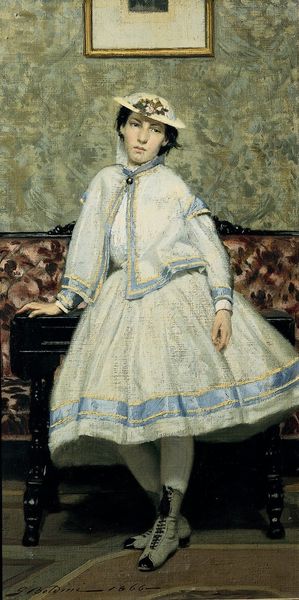
painting, oil-paint
#
portrait
#
painting
#
impressionism
#
oil-paint
#
intimism
#
romanticism
Dimensions: 54.6 x 66 cm
Copyright: Public domain
Editor: So here we have "Sarah Bernhardt as Pierrot," an oil painting by Giuseppe de Nittis. She appears melancholy, doesn't she? Almost a sorrowful Pierrot, enveloped in all that white. What are your initial thoughts on this piece? Curator: Well, it is indeed interesting how de Nittis presents Sarah Bernhardt. Traditionally, Pierrot was a male character. Here, we have a woman, a very famous actress known for challenging gender norms, inhabiting this role. How does that change our understanding of Pierrot? What does it say about the representation of women in the late 19th century? Editor: That's fascinating. It flips the script, doesn’t it? She’s not just playing a role, but maybe commenting on the performative nature of gender itself. Curator: Precisely. Consider the rise of celebrity culture at that time, the public's fascination with actresses like Bernhardt, and how their images were circulated. De Nittis is participating in that, but also perhaps subtly critiquing it. This is no ordinary portrait, but a statement on the theatricality of life. Editor: I hadn’t thought about it that way. I was just focusing on the impressionistic brushstrokes and the melancholic mood. Curator: The technique certainly adds to the overall impression, but don't underestimate the socio-political context. Think about the Salon system, the gatekeepers of art, and how artists like de Nittis were navigating those spaces while pushing boundaries. This portrait then becomes an act of defiance but also a canny self-promotion. Editor: I see it now, that it’s much more than just a portrait. It’s about Bernhardt's persona, gender roles, and even the art world at that time. I learned so much! Curator: As did I. Examining the painting in this way, it is not just representation of a person but an examination of social forces at work.
Comments
No comments
Be the first to comment and join the conversation on the ultimate creative platform.
